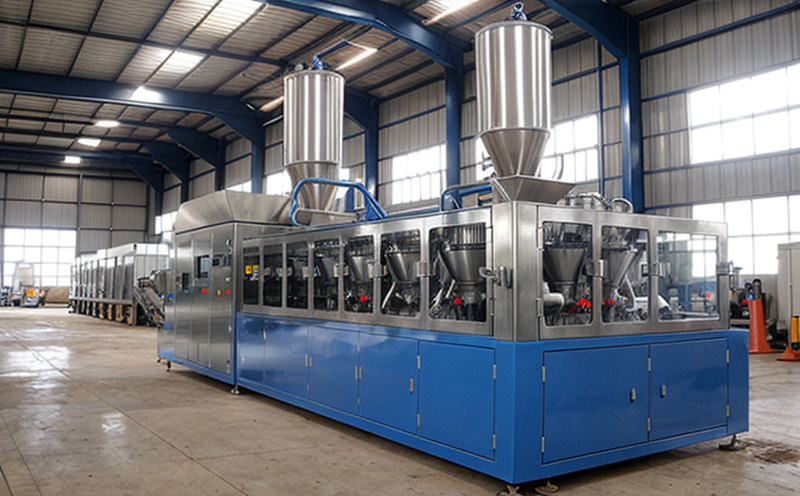Screening and sieving machine inspection
The screening and sieving machine inspection is a critical process in various sectors including construction, mining, and materials science. These machines are essential for processing raw materials into specific size fractions to meet industrial or regulatory standards. Ensuring the proper functioning of such machinery not only enhances productivity but also ensures safety and compliance with international standards.
Screening and sieving machines operate by separating particles according to their size using a series of mesh screens. The effectiveness of these machines is paramount, as they are used in processes that directly impact product quality and downstream operations. Regular inspections and maintenance are therefore crucial to prevent breakdowns, improve efficiency, and ensure safety.
Inspection involves several key steps. Initially, the machine’s operational parameters such as feed rate, capacity, and energy consumption are evaluated. The screens themselves require careful examination for wear and tear, blockages, or deformations that could affect separation accuracy. Additionally, the motor and drive components must be checked to ensure they are operating efficiently without signs of overheating or abnormal vibrations.
Compliance with international standards is essential in this process. For instance, ISO 10691-2 specifies dimensions for sieves used in particle size analysis, ensuring consistency across different inspection processes. Similarly, ASTM E141 provides guidelines on sampling procedures that ensure the sample taken for inspection accurately represents the material being processed.
Quality assurance is a critical component of our screening and sieving machine inspection service. We employ advanced diagnostic tools and techniques to identify potential issues early, minimizing downtime and ensuring continuous operation. Our team uses state-of-the-art equipment such as particle size distribution analyzers and laser diffraction instruments to provide precise measurements.
Our experienced technicians follow a rigorous protocol that includes visual inspections, functional tests, and performance evaluations. This ensures that the machine meets all specified criteria for accuracy and reliability. By adhering to these standards, we guarantee the highest quality of service, which is essential for maintaining compliance with industry regulations and customer expectations.
Regular maintenance and periodic inspections are vital in extending the lifespan of screening and sieving machines. Our team recommends routine checks every six months or according to specific machine requirements. During these inspections, we focus on identifying any signs of wear and tear that could lead to malfunctions. Early detection allows for timely repairs, preventing costly breakdowns and unscheduled downtime.
We also provide comprehensive reporting that details the condition of each component inspected during the process. This report includes recommendations for necessary maintenance or replacements based on our findings. By providing this detailed documentation, we ensure clients have all the information needed to make informed decisions about their machinery’s upkeep.
Why It Matters
The importance of screening and sieving machine inspection cannot be overstated in various industries where precision is key. In construction, for example, accurate particle sizing ensures that aggregates used in concrete meet the required specifications, leading to stronger structures. In mining operations, consistent feed sizes are crucial for efficient processing and optimal extraction rates.
From a safety perspective, malfunctioning machines pose significant risks. A clogged screen or worn-out motor can lead to accidents if not addressed promptly. Compliance with international standards is also essential in ensuring that products meet quality benchmarks set by regulatory bodies. This compliance helps businesses avoid penalties and maintains their reputation for delivering high-quality outputs.
Furthermore, regular inspections play a crucial role in preventing costly repairs later on. By identifying issues early through routine checks, businesses can save substantial amounts of money that would otherwise be spent on emergency repairs or complete replacements. Additionally, maintaining consistent product quality is vital for customer satisfaction and long-term business success.
Eurolab Advantages
At Eurolab, our commitment to excellence sets us apart in the field of screening and sieving machine inspection. Our team comprises highly skilled professionals with extensive experience in materials testing and quality assurance. With state-of-the-art facilities equipped with cutting-edge technology, we offer a range of services tailored specifically for your unique requirements.
Our approach emphasizes not only meeting but exceeding industry standards. By adhering strictly to guidelines such as ISO 10691-2 and ASTM E141, we ensure that every inspection conducted by our team is thorough and reliable. This commitment translates into improved machine performance and enhanced product quality for our clients.
Moreover, Eurolab’s unwavering focus on customer satisfaction ensures personalized attention to each project undertaken. Whether it's a one-off inspection or ongoing support services, we tailor our offerings to suit the specific needs of individual businesses. This level of customization guarantees that no detail is overlooked in achieving optimal results.
In addition to providing top-notch technical expertise, Eurolab also emphasizes sustainability practices within our operations. We strive to minimize waste generation during inspections and encourage environmentally friendly handling methods wherever possible. By integrating eco-friendly processes into our services, we contribute positively towards reducing the environmental footprint of industrial activities.
Quality and Reliability Assurance
Visual Inspection: Conducted meticulously using specialized tools to examine each part for signs of wear, damage, or misalignment.
Functional Testing: Machines are operated under controlled conditions to evaluate their performance accurately. This includes checking parameters like feed rate and capacity.
We use sophisticated equipment such as particle size distribution analyzers and laser diffraction instruments to measure the precision of the machine’s operations. These tools provide precise data that help us assess how closely the machine adheres to specified standards.





